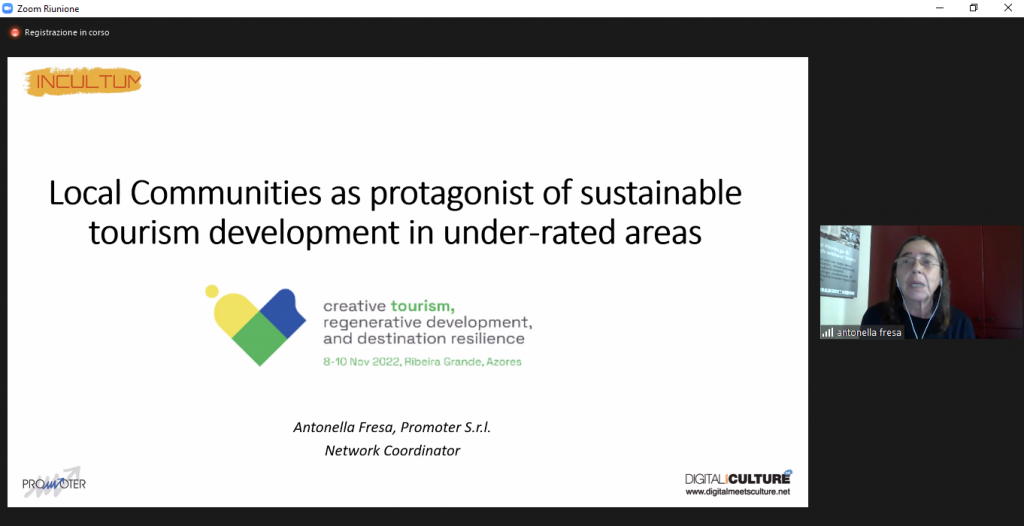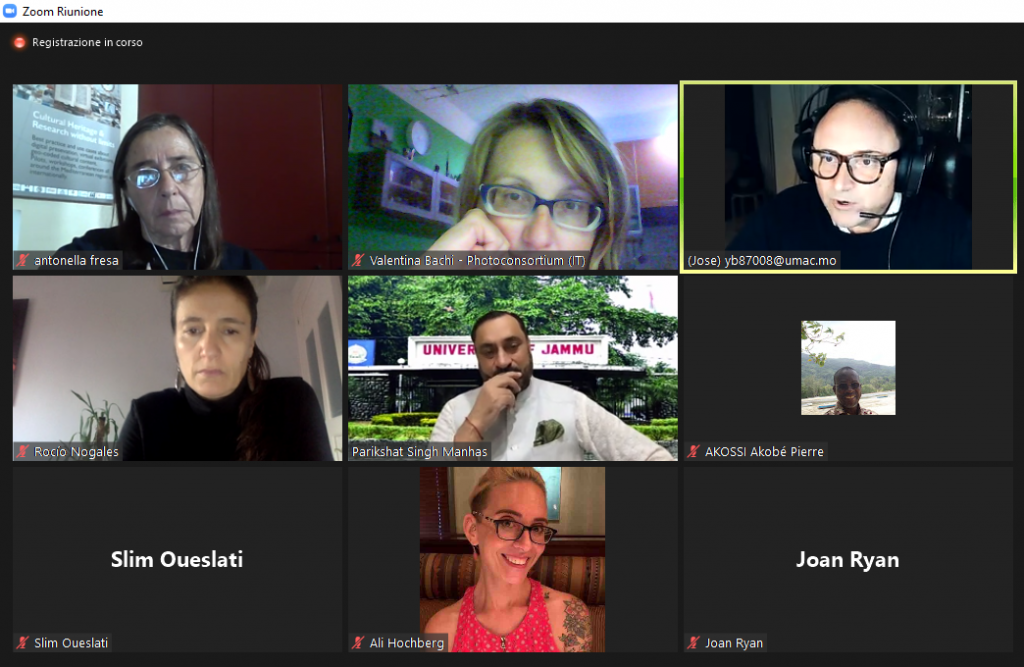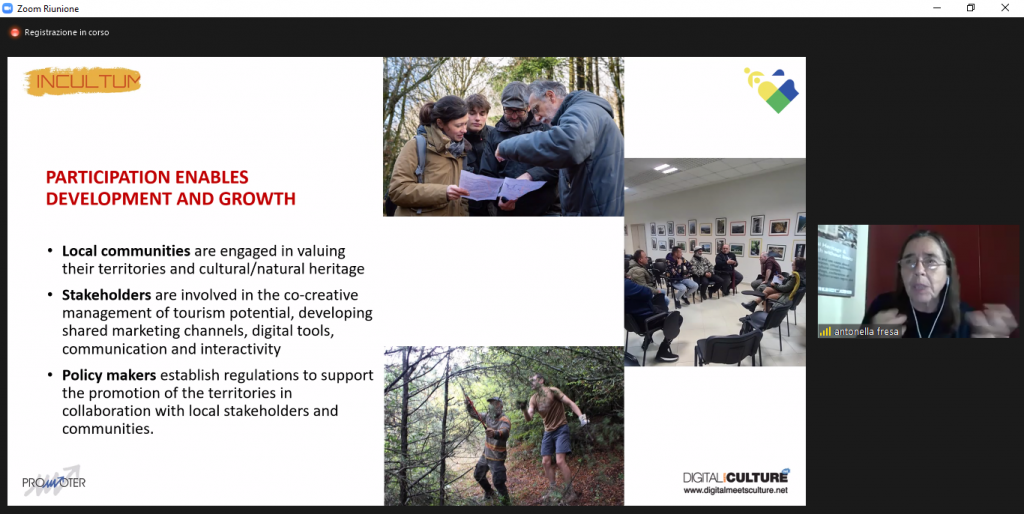|
Digital meets Culture https://www.digitalmeetsculture.net/article/incultum-presented-at-creative-tourism-regenerative-development-and-destination-resilience/ Export date: Wed Apr 2 8:22:44 2025 / +0000 GMT |
INCULTUM presented at Creative Tourism, Regenerative Development and Destination Resilience This international conference was developed with an intent not only to address but also to progressively contribute to the context of change for cultural and sustainable tourism, understanding the contexts and dynamics. Researchers/academics, artists, tourism practitioners, and students presented their research, projects, and reflections in an array of related topic areas. The rich variety of papers presented in the plenary and concurrent sessions attests to the importance of bringing interdisciplinary, diverse perspectives together to think about and address the issues of this particular point in time. Furthermore, they reinforce the importance of recognizing the specificities of individual places and the well-being of communities. Book of Abstracts (PDF, 1,47 Mb)  Network Coordinator Antonella Fresa delivered a presentation about INCULTUM and its Pilots in the panel session entitled "Entangling the margins: Communities, collaboration, and co-creation", chaired by Parikshat S. Manhas, University of Jammu, India, and Universidad de La Laguna, Spain. Download the presentation (PDF, 1.7 Mb)  ABOUT THE CONFERENCE Among the most-promising trends in the tourism sector, culture-based creative tourism has garnered increasing support and enthusiasm as a pathway to regenerative development and destination resilience, two essential components of sustainable tourism and development. Inherently personalized and participative in practice, creative tourism is based on the personal contact of one-on-one and small-group experiences based on the culture of a place and its people. Focused in its dimension and emphasis, creative tourism offers visitors the opportunity to hone their creative instincts and tendencies, as they learn about the local culture through direct contact with artists, artisans, and cultural agents of the destination community. The result is a dynamic, interactive exchange that both incorporates and promotes regenerative, sustainable local development and destination resilience. Conference website: www.ces.uc.pt/creative-azores ABOUT THE CREATOUR AZORES PROJECT CREATOUR Azores - Turning the Azores into a Creative Tourism Destination is an integrated research-and-application project that aims to advance research focused on creative tourism in island regions, diversify tourism offers in the Azores, and strengthen links with other regions of Portugal where this model has already been implemented through the CREATOUR project as well as with other islands where the approach could be replicated. The main objective of CREATOUR Azores is to empower various agents located in the Azores archipelago to develop, implement, and promote creative tourism experiences through which tourists can actively participate in creative activities, providing opportunities for learning, creative self-expression, and interaction with local communities. A creative tourism approach allows both visitors and communities to benefit from tourism exchanges, promotes cultural vitality and sustainability, and allows artistic and creative activities to play a driving role in socio-economic development. In addition, the CREATOUR Azores project intends not only to strengthen knowledge about specific market segments that may have greater interest in the products of creative tourism available in the region (matching profile characteristics and offers of specific destinations) but also to identify the most appropriate channels to communicate with these differentiated segments. Given the unique location and intrinsic characteristics of the Azores – a nine-island archipelago located in the North Atlantic – there is a very high potential for the development of internationally attractive and unique creative tourism offers in this island region. The CREATOUR Azores project is coordinated by the Observatory of Sustainable Tourism of the Azores (OTA) and the University of the Azores/Gaspar Frutuoso Foundation, in partnership with the Centre for Social Studies (CES) of the University of Coimbra, Portugal. |